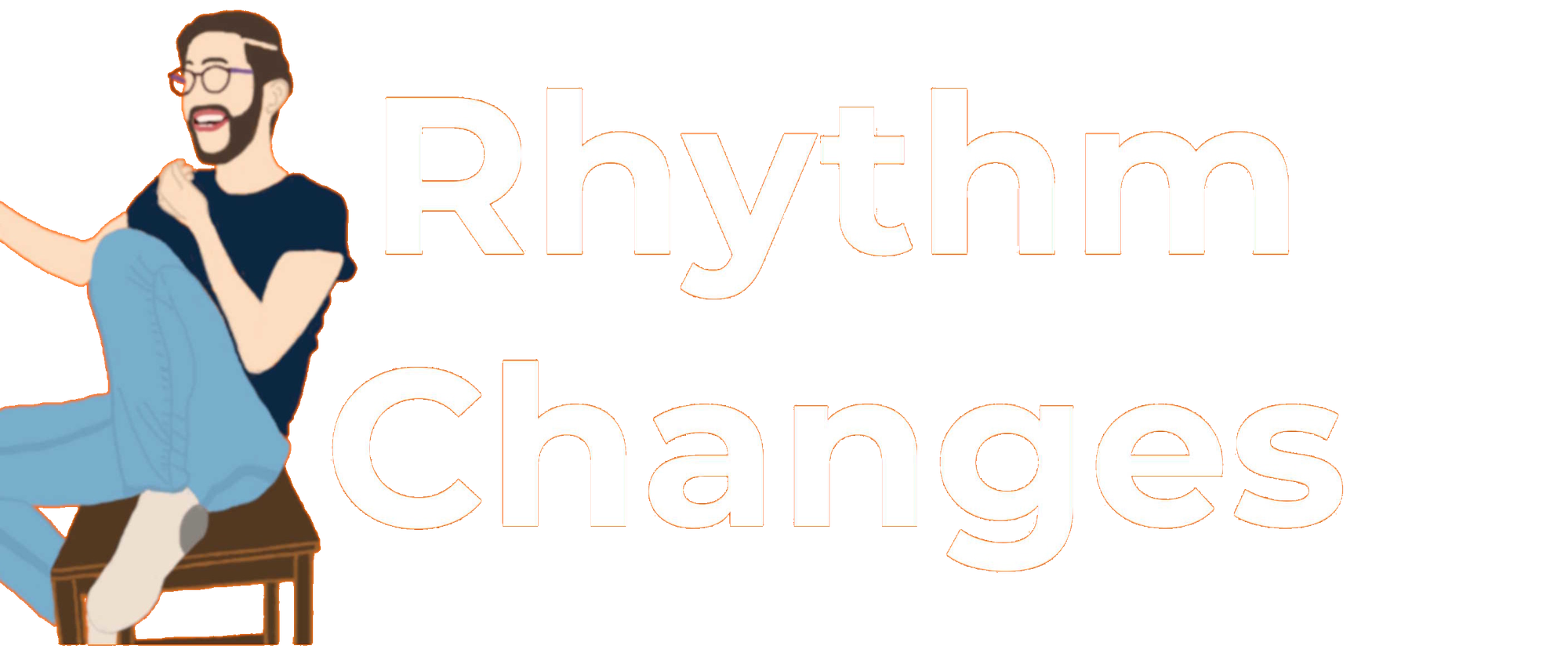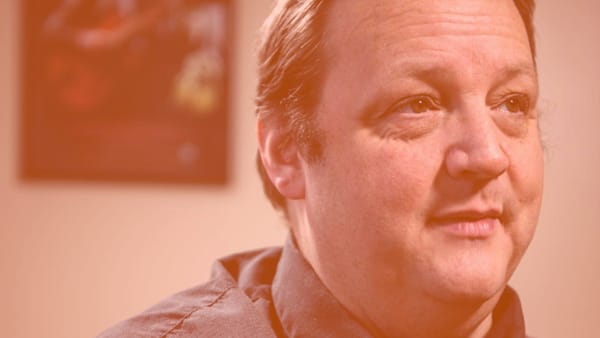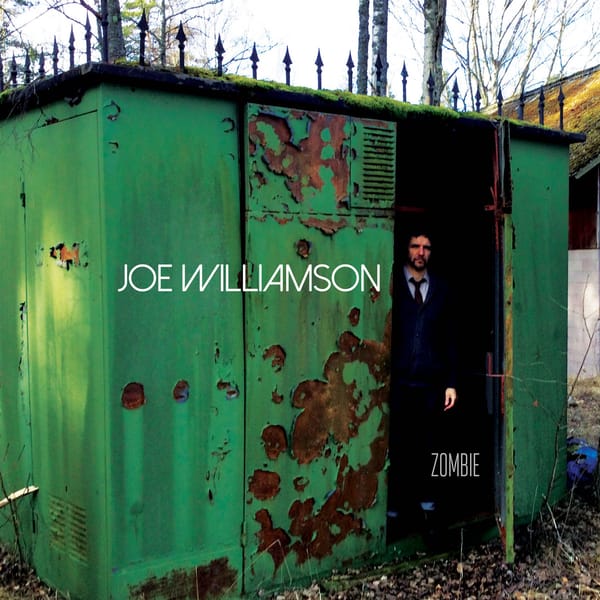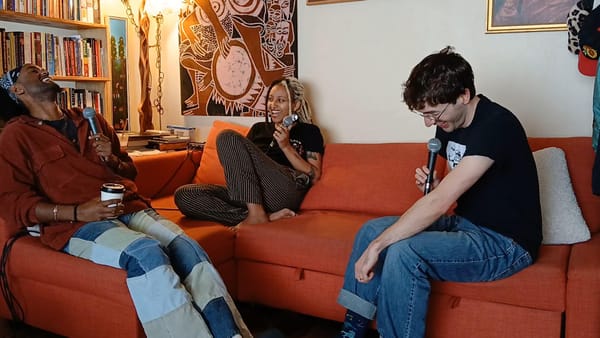Alvaro Rojas on covering a whole album track-by-track
The guitarist is in the Strange Worlds Trio, who play Tyrant tomorrow; together they recorded an entire Reid Anderson album
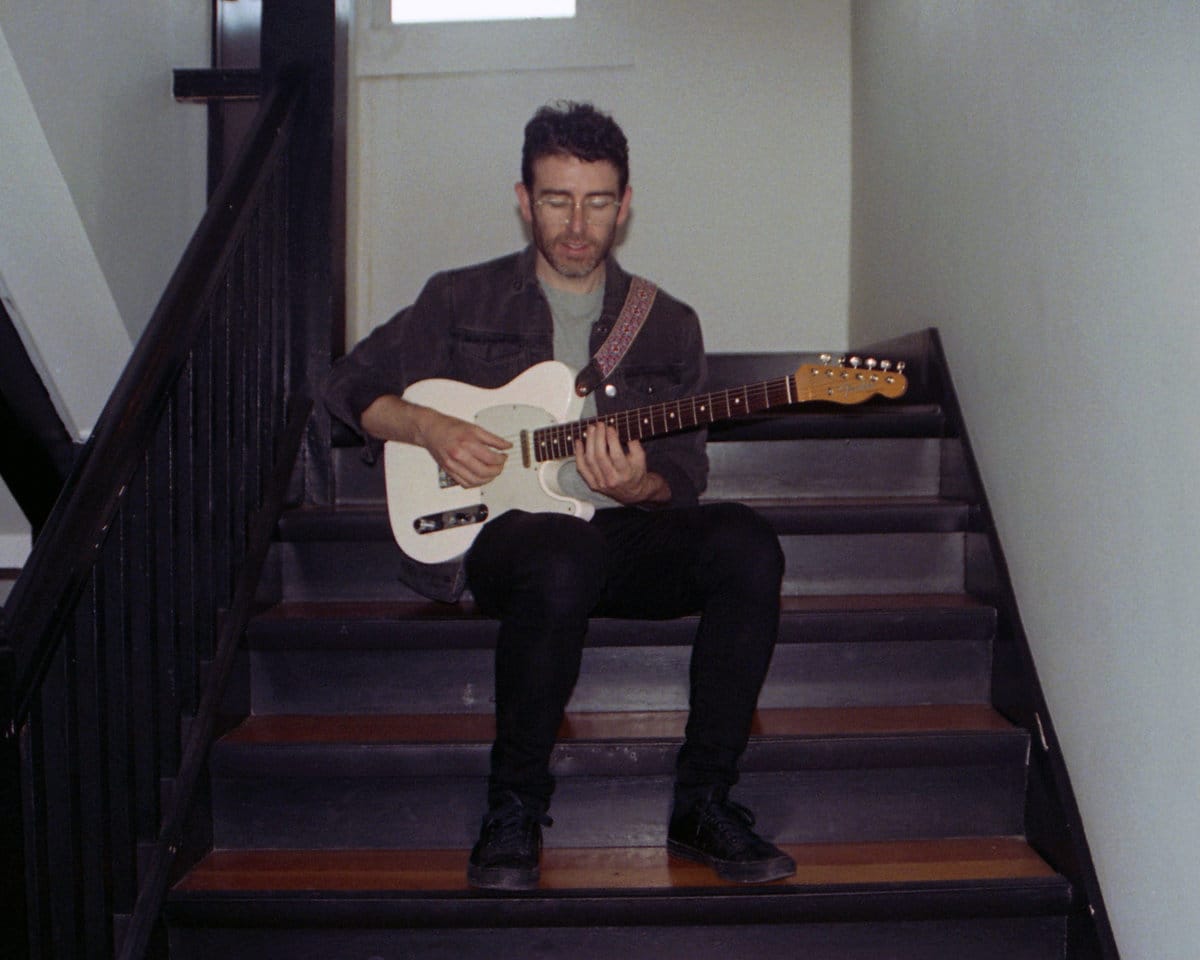
Guitarist Alvaro Rojas released one of 2024's most unique projects in our scene when he uploaded an album called Plays Reid Anderson's "The Vastness of Space" exclusively to his Bandcamp. It's what it says on the can: a track-by-track cover of the album by Anderson, the composer, bassist, and co-founder of The Bad Plus.
The Vastness of Space is a two-saxophone quintet album with Andrew D'Angelo and Bill McHenry on alto and tenor respectively, Ben Monder on guitar, Anderson on bass, and Marlon Browden on drums. But Rojas' album features just three musicians: the Strange Worlds trio of himself, James Meger on bass, and Dan Gaucher on drums. This trio plays Tyrant Studios tomorrow, Wednesday, May 7, 2025.
I bought Plays Reid Anderson's on Bandcamp and spoke to Rojas all the way back in September 2024 about it, but I ended up keeping the interview on the backburner for several months. This story is about someone following his creative inspiration, staying close to his good friends, and getting the job done every step of the way while having fun. Rojas is a man of action. He even showed the project to Anderson!
On the occasion of tomorrow's show by the Strange Worlds Trio, please enjoy my conversation with him below. I made some transcript editing for clarity.
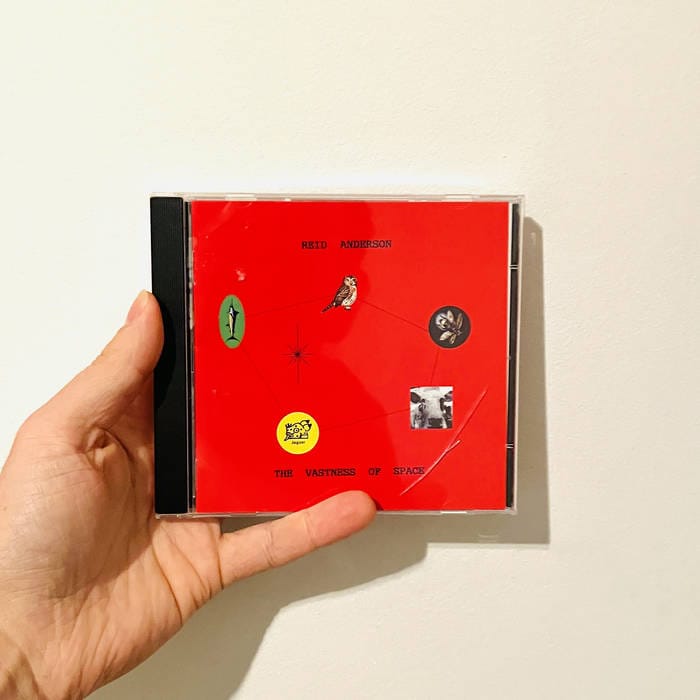
released May 3, 2024 | Buy digital (Bandcamp)
WC: Okay, Alvaro, thanks for joining me. How did you decide to do this? It's a unique format, covering an entire album track-by-track. When did the decision come to you?
AR: I know it's a weird idea, and it's not really an idea that I can think of any successful examples of. Can you think of any? The only thing I could think of is Dub Side of the Moon, which is kind of a novelty thing. But I can't really think of any other instances of anybody covering an entire album and it being interesting. Actually, the Ryan Adams cover of Taylor Swift's 1989 is kind of interesting.
WC: Bingo.
AR: It was just kind of a really long process. This album, I've had it forever. and I've always really loved it. It got stuck in my car CD changer, and I just ended up listening to it over and over and over again. Then, to get over a creative and personal slump years ago, I decided that I would transcribe the album, just for an exercise. So I did that and just had the tunes lying around, and then while I was kind of slowly doing trio gigs, I'd pull out a tune here and there that seemed like it would work. Are you familiar with the original [album by Anderson]?
WC: Yes, but I didn’t know it before this project of yours. So you introduced me to it!
AR: So good, right? Yeah, so the original is with two horns plus guitar and rhythm. And at first I was like, okay, there's only a couple of these tunes that I can really pull off and make them an arrangement for as a trio. Otherwise it's going to be missing too much of the information. So I slowly started playing these tunes, And every time I pulled out one of these tunes, it was just such a hit and so much fun to play.
Dan and James and I have been playing music for a long time, and kind of started playing a little bit more regularly, and we were all fans of this one. We got the idea to learn the whole thing as a little challenge, a little project. And then basically, we just took it too far and recorded it. We were at Dan's place on Galiano Island, hanging out and just having a great time at kind of a guys’ weekend. Yeah, we just decided to record it. We were in a friend's home studio getting some great sounds, and we just went for it.
I’m trying to be a little bit more disciplined with that process of having an idea and then actually finishing it, because, we all get so many ideas. I'm gonna start this band, start this project, whatever. and then it fizzles out. And you get a new cool idea and you kind of work with it, and then that fizzles out. So I'm just trying to be a little bit more disciplined with completing projects, even if it is a bit of a side quest, in the parlance of our times,
WC: Yeah. it strikes me that... “I'm going to give the project of learning an entire album that I wrote the arrangements of, to two of my friends.” That's a lot of heavy lifting there. You said that you've been playing with them for a long time. Can you talk more about the trust and the background that you have with those two, that allows you to just introduce a project like that?
AR: Honestly, I mean, it was pretty easy. It didn't really take very much convincing. It's not like I just had this idea and was like, let's try this. It was, from the first time to releasing [the album]... I don't know. I probably transcribed it in 2018 or 2017, and then just had the tunes lying around, and then they got introduced bit by bit. Those guys, there's some of my best bros, in terms of music and in terms of just life. We have a great deal of trust in each other, and bringing new music, original music as well. Trying different ideas in improvising, or in working with each other's material, those guys are so good.
We're working with original tunes as well. I'll bring in an original tune or we’ll be looking at one of Dan's or James' tunes, and everybody is like, what if we move this section over here, or if we did this twice? Being very open to collaborating and hearing everybody's ideas, and really just kind of going for what makes the most sense. It's really easy with those guys. That's a beautiful thing when you have long-term musical friendships and relationships, right?
WC: Yeah. Absolutely. The last time that I featured you as a leader at Rhythm Changes was when you put out your album Music for 22. Can you talk in general about your time over that last two-ish years or so? Are you at a much different place than then, or how has your evolution been over the last two years?
AR: That was a different kind of project. That was a project that started off as solo guitar pieces, and then I added the string bits and then added a whole bunch of production elements after the fact. And then, this Vastness of Space thing was very much a playing thing. That's what I wanted to get back to after all this concentration on writing. I wanted to do something that was just playing, and just work on my playing a little bit. I’ve been thinking about smaller ensembles.
So since [Music for 22], it's been a trio. And I have a solo thing that I just finished recording. That's gonna be probably coming out next year [WC: which would now be this year, 2025]. It's been more like solo, duo, smaller, focusing more on guitar playing and developing my sound or concept or whatever. And then the pendulum will swing the other way, because I'll be sick of that, and I want to play with lots of people again and write music for big groups.
WC: Yeah. In terms of the tracks on this album, are there certain tracks which stand out in your mind now that you've worked this material so much? Maybe it's different ones from when you arranged them years ago.
AR: Yeah. These tunes are so... They're so fun to play. I love the tunes. “Talons”, that tune is so good.
AR: "Reclusive" is another one... Just melodically and harmonically, it's so sneaky and such a weird groove. It's 5/8 + 2/4 or something like that, but I just love the dark harmony. And yeah, it's like we're trying to get a really simmering, molten sound on that one.
“Silence is the Question”, that's such a classic Reid tune, The Bad Plus. There’s a couple good versions of that one. It's really fun to play.
AR: They're all so fun to play.
WC: What about Reid Anderson in general? What's your reflections on him as an artist?
AR: I mean, he started off with these solo albums, and then The Bad Plus. And I mean, they were just so successful, right? It's unheard for a trio or jazz group to have that kind of crossover success, especially as they caught the end of the CD era too. I hope that they did well and it made some money. I mean, they're still doing it and still making cool projects. I didn't see the last Bad Plus show [at the 2024 jazzfest], but I think they're coming again next year [WC: they are, and the timing now is also good for that – it’s May 16th!].
But I did listen to the [self-titled 2022 The Bad Plus] record. And like, it's funny with Ben Monder and Chris Speed. I've listened to all these guys’ albums. It sounds like it's another Chris Speed album, you know what I mean? I've just listened to all of these guys in so many different projects, and so it's just another addition to the little world that they've created of them and their collaborators.
Reid is such a melodic writer. The tunes make so much sense and there's always a little twist. It's like playing Monk’s tunes or something like that. Or Wayne Shorter’s tunes, they're just like that. It just makes so much sense, and they're just great to play.
WC: I'm so glad you brought up Ben Monder, because I was just gonna ask about him next. We can talk about him as a guitarist, too. What else can you share about his influence on you?
AR: Ben Monder’s just absolutely terrifying. I think the first time I really heard Ben Monder was on his first album called Flux, which is just insane. Low guitar. atonal, plinkity-plunkety passages, and then crazy shredding and stuff, too. When we started doing this cover project, I realized that even though all of his parts and solos are burned into my memory, it's just gonna sound terrible if I try to do anything that's imitating in any way what he did. So that was kind of a relief, really! It's like, okay, we're not going to even attempt to cover that territory. I’m just gonna do my own thing over here and try to do my own version of it.
But no, Ben Monder, I love that music. Haven't kept up with this last couple of releases, but at least the early ones and a lot of his sideman stuff back in the early 2000s is pretty influential.
WC: Yeah, there was one more track I wanted to bring up, which isn't a direct reflection on talking about Ben Monder. But “The Owl”, I think that's one of my favorite tracks too.
WC: Just the style of that riff and that melodic style, it's all so tied into what you were just saying about how [Anderson and Monder] influenced you. But I love the way that you deliver it. You're in the smaller band format. You have more space to shine on that melody.
AR: Thank you.
WC: I love that track.
AR: Yeah, that's a hard tune to play. I guess we just tried to rock that one out as much as possible. I think that we tried to – even though it's not trying to capture any of the the direct performance, as you know – we tried to capture the energy of those recordings, right? And on “The Owl”, Andrew D’Angelo plays this crazy, super-harsh, skronky solo. He goes first, and then Bill McHenry goes. And Bill McHenry plays this perfect, beautifully sculpted solo. He's outlining all the changes, and it's so bang-on. But Andrew was just pure, strong. So I think we tried to go somewhere in between there, have the attitude and the rudeness, but also make it seem like we know what we're doing.
WC: Since we've been rolling on the music itself, but also being mindful of the time, are there any other tracks or musical moments on your album that you want to emphasize here?
AR: I love what James and Dan do on the whole thing. Those guys are the MVPs of this project to me, because first of all, like you said, they rolled with this crazy idea with total enthusiasm and commitment. They knew their parts and did their own thing with them, and were open for the whole thing.
I love what Dan and James play on “Reclusive” like that. That's probably my favorite track. I love the vibe on it and Dan’s pocket on that, and how he builds it. And James creates this whole... it's like a big molten soup of sound. I just love it.
James’ solo on “The Captain” is just crushing.
AR: Yeah, those guys, they play together a lot and you can totally hear it. There's so much love and willingness to go and get out there.
WC: I feel like you got almost a parallel personality of Sick Boss in this project.
AR: I mean yeah, I guess so. In the same way that Reid and these guys are in all of each other's communities, that's just the way it is out here. I mean, we went to school together and have played in different bands and projects together. And it goes back to what you were saying at the start of this, about these musical relationships that you can build. Then it’s not a huge leap to ask somebody to do something a little bit outside the ordinary. I mean, don't you like it when people ask you to do weird things? [Laughs.] It's fun, right?
WC: Yeah. Absolutely!
AR: Yeah.
WC: I have one more technical or boring question I guess. Because I'm a nerd and I've worked for record labels, one of the first things that occurred to me when I saw this project was, you can't just release this on streaming. Or if you did, you would have to pay a significant amount of money to do it.
AR: Why can't you release it on streaming?
WC: I mean you can, but sometimes if you cover a bunch of songs, depending on what they are or how you do that, sometimes you either have to pay extra for it, or you're not allowed to do it if it's in a sample-based way.
AR: No, I paid for it! You get a license. It's not expensive. I can't remember what it is per tune, but I think it was maybe a hundred bucks for everything or something like that. I don't know. I’d also gotten the thumbs-up from Reid.
WC: Really? Awesome! So you reached out to him after it was done and–
AR: I don't know if he listened to it, but he gave the thumbs-up.
WC: That's so cool.
AR: Yeah, no. It's not a big deal. I mean, that's what you have to do.
WC: You’re right. I'm glad to hear you give that perspective here. Because yes, if you just compare it to releasing all originals, there’s slightly more of a barrier. Even in this case, where it is very straightforward to doing it. But like you say, when you're motivated to do it, you get it done and it's not hugely onerous.
AR: It's easy.
WC: Yeah. I'm happy to hear that, that's a good message. I appreciate that. Is there anything else about the project that you wanted to mention before we wrap up here?
AR: No, just it was fun to do. Yeah, those guys nailed it. Thanks for being interested in it.
WC: Definitely, thank you for your time. I appreciate it.
AR: No sweat!
